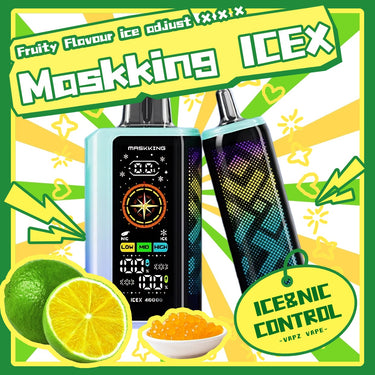Vaping and Air Travel: Preparing for Your Next Fligh
When it comes to vaping, being responsible while driving is one thing, but traveling by airplane with a vaporizer or disposable vape requires an added level of responsibility. Not only do you have to consider hundreds of other passengers, but you also need to navigate through a list of TSA rules and regulations that must be followed. By adhering to these guidelines, your travel experience should be smooth sailing. However, disregarding safety regulations may result in scolding or more severe consequences.
Can I Bring My Vape on a Flight?
The good news is that currently, most airlines widely accept flying with a vape or disposable vape. However, there are some important considerations to keep in mind before your trip. In this post, we'll cover the basics of traveling with a disposable vape.
Why Is There Concern About Flying with Disposable Vapes?
Contrary to popular belief, the primary concern is not someone sneaking into the bathroom to vape. We would like to think that most vapers are considerate and would not engage in such behavior.
The main concern when it comes to flying and vaping is the lithium-ion and lithium-metal batteries used in most vapes. These types of batteries can overheat and, in rare cases, even catch fire. The altitude and pressure changes associated with flying could potentially make a battery more prone to overheating, hence the concern. However, when responsible vapers take appropriate measures, the risk of encountering any issues is minimal.
Step 1: Know Where to Pack Your Vaporizer or Disposable Vape
According to FAA regulations, all mods, e-cigarettes, and disposable vapes must be packed in an approved carry-on bag and brought onto the plane with you. Additionally, all lithium-type batteries must be carried on the plane and should not be stored in checked baggage. If you attempt to do so, they will be flagged during the screening process, and you may lose your valuable items. It is crucial never to check any type of vape device or lithium battery. However, you can check spare vape juice containers as they pose no danger when stored in the aircraft's hold.
Complying with Federal Aviation Administration (FAA) Rules
The FAA sets guidelines for carrying e-cigarettes, vape pens, atomizers, disposable vapes, and other electronic nicotine delivery systems on planes. These rules ensure that batteries are safely packed, posing little to no risk, and that any liquid (e-juice) falls within the acceptable limits for liquids and gels.
Currently, the FAA restricts lithium-ion batteries to a maximum of 100 Watt-Hours (Wh) and lithium-metal batteries to a maximum lithium content of 2 grams. Batteries exceeding these limits are not allowed.
Travelers with vape kits can carry spare batteries, but each battery must be individually protected to prevent any contact with metal that could complete a circuit. This can be achieved by leaving batteries in the manufacturer's packaging, covering the contact points with tape, using a battery case or camera bag, or placing them securely in a plastic bag or protective pouch.
Regarding vape juice, if you prefer not to pack it in your checked baggage, all cartridges or bottles must comply with the standard FAA regulations for liquids and gels, which means they should not exceed 1 ounce (approximately 30 ml). Additionally, they must be placed in a clear, zip-lock bag.
What About Disposable Vapes?
Disposable vapes are slightly different because the battery cannot be separated from the vaping device. According to FAA regulations, disposable vapes should be placed in the same clear, zip-top bag used for storing liquid items. Even if you're not carrying additional liquid items onboard, your disposable vape still needs to be placed in a clear, zip-top bag.
It's important to remember that the FAA's mission is to ensure the safety of all passengers, and it is the responsibility of individual vapers to comply with safety rules.
Vaping on a Plane Is Illegal
Unfortunately, according to the Wall Street Journal, there has been an increase in vape incidents on airplanes. FAA officials report that the number of lithium-battery air incidents related to e-cigarettes and vapes, involving smoke, fire, and extreme heat, has tripled since 2019. This rise in cases is deeply concerning and indicates that not all vapers act responsibly.
If you are caught vaping on a plane, you commit a criminal offense that can result in substantial fines and even imprisonment. Upon landing, authorities will meet you, and you are likely to be banned from flying with that particular airline again. If you are traveling to another country and get caught, border security will intercept you, and you may be permanently barred from reentering that country.









